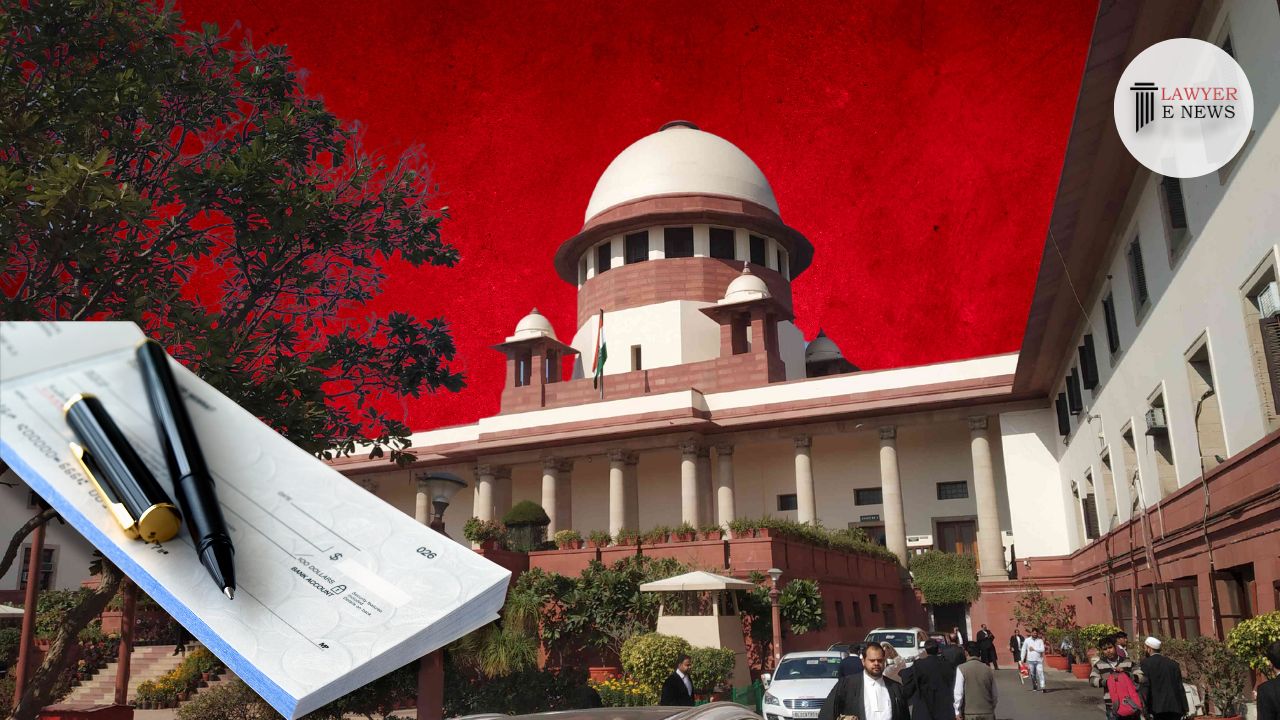-
by Admin
15 February 2026 2:36 AM



The Supreme Court observed in the recent judgement (M/s. BLS INFRASTRUCTURE LIMITED Vs. M/s. RAJWANT SINGH & OTHERS D.D. 01 March 2023) that under Section 256 of the Cr.P.C., a Magistrate can dispense with the attendance of the complainant and proceed with the case if the complainant's presence is not necessary. However, if the complainant has already examined his/her witnesses, the court cannot pass an order of acquittal merely on non-appearance of the complainant.
An appeal challenging the judgment and order passed by the Delhi High Court on 7 November 2019. The Delhi High Court had dismissed Crl.L.P. Nos. 315 to 322 of 2019 filed by the appellant against the order of Metropolitan Magistrate-04 (N.I. Act)/South East, Saket Courts, New Delhi dated 25.01.2019. The question before the Supreme Court is whether the learned Magistrate was justified in dismissing the criminal complaints filed by the appellant under Section 138 of the Negotiable Instruments Act, 1881 for non-appearance of the complainant, even though the statement of the complainant had been recorded and evidence was closed.
The appellant had filed eight complaints against the respondents under Section 138 of the Negotiable Instruments Act, 1881. Out of the eight complaints, in Complaint Case Nos. 621742/16, 621743/16 and 621744/16, the complainant was subjected to cross-examination. On 26 October 2017, the learned counsel for the accused made a statement before the learned Magistrate that the cross-examination of CW-1 (the complainant), as made in the above three cases, shall be adopted in the remaining complaints. Based on this statement, the complainant's evidence was closed, and the cases were directed to be listed for recording of defence evidence. At that stage, an application was filed by the complainant under Section 311 of the Code for summoning certain witnesses.
The appellant's counsel allegedly misled the appellant into a belief that the appellant's presence was not required as a settlement was being negotiated. The appellant did not appear, and ultimately, the complaints were dismissed for non-appearance vide order dated 25.01.2019.
The learned counsel for the appellant submitted that the learned Magistrate, while dismissing the complaints for non-prosecution, lost sight of the proviso to sub-section (1) of Section 256 of the Code.
The learned counsel for the respondent(s) submitted that sub-section (1) of Section 256 of the Code does not contemplate any power on the part of the court to proceed with the matter after a complainant has failed to appear, and that the proviso to sub-section (1) of Section 256 of the Code does not come into operation where the complainant has failed to appear.
Observed and Held by Supreme Court
The Supreme Court observed that under Section 256 of the Code of Criminal Procedure, a Magistrate can dispense with the attendance of the complainant and proceed with the case if the complainant's presence is not necessary. However, if the complainant has already examined his/her witnesses, the court cannot pass an order of acquittal merely on non-appearance of the complainant.
The purpose of Section 256 is to deter dilatory tactics by a complainant, but it does not mean that the court has a duty to acquit the accused in the absence of the complainant. The court must pass a judgment on the merits of the matter after the prosecution has closed its case and the accused has been examined under Section 311 of the Code of Criminal Procedure.
The Supreme Court observed that the lower courts had failed to consider the fact that the appellant had led its evidence in the case and had moved an application under Section 311 of the Code to summon and examine further witnesses.
The Supreme Court held that the learned Magistrate was not justified in dismissing the complaint(s) and ordering acquittal of the accused on the mere nonappearance of the complainant, and the orders impugned were liable to be set aside. Appeal Allowed.
M/s. BLS INFRASTRUCTURE LIMITED Vs. M/s. RAJWANT SINGH & OTHERS
